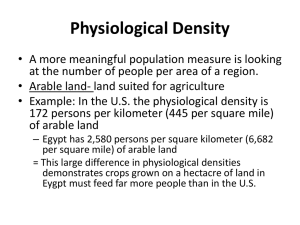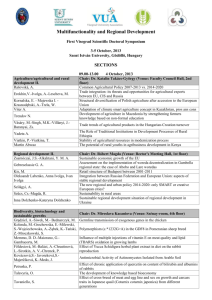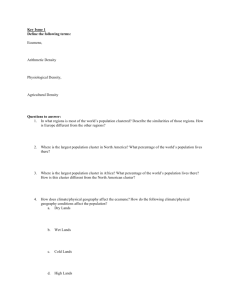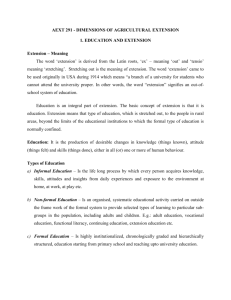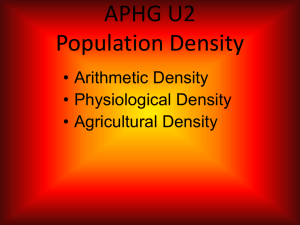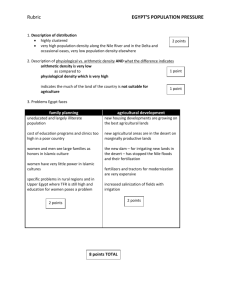File
advertisement
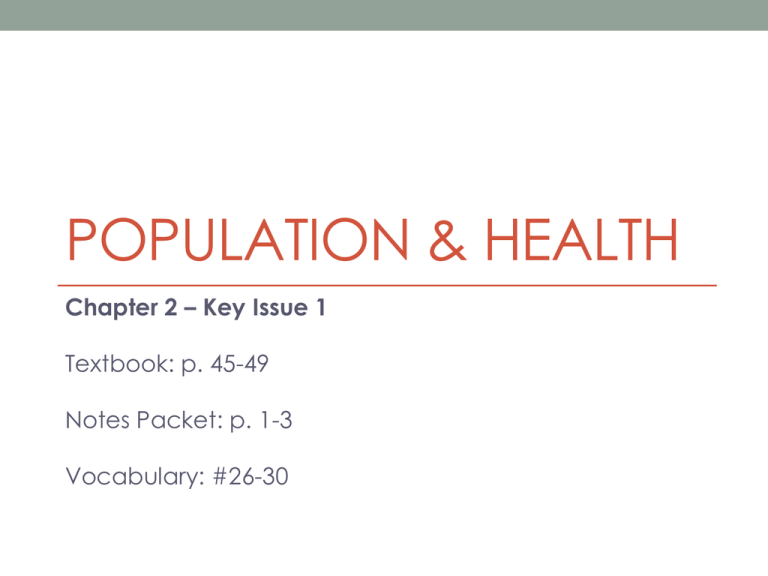
POPULATION & HEALTH Chapter 2 – Key Issue 1 Textbook: p. 45-49 Notes Packet: p. 1-3 Vocabulary: #26-30 ENERGIZER Do Now: take out Key Issues and vocabulary Do Next: color and label the blank map Tuesday, September 29 Objectives: Describe regions where population is clustered and sparse. Define three types of density used in population geography. Howework: Due Wed World Regional Map Quiz Due Thu Key Issue 2: p. 4-5 Vocab: #31-38; 42-45 Due Fri Current Event Vocab Quiz Where would you put these terms on the map? Clustered Urban Dispersed Rural Population Clusters China Japan, Koreas A. Mostly urban B. Mostly rural C. 50% rural, 50% urban South Asia Southeast Asia Europe D. Mountains & deserts E. Rivers & coalfields F. Islands G. Farmers Africa H. Industrial jobs Population Clusters A. Mostly urban C, D, G, H China A, H Koreas Japan, B, G South Asia D. Mountains & deserts B, F, G SE Asia E. Rivers & coalfields A, E B. Mostly rural C. 50% rural, 50% urban Europe F. Islands G. Farmers B, G Africa H. Industrial jobs True or False? ① Most Japanese and Koreans live in cities. ① The ecumene of Sub-Saharan Africa has increased. True or False? ① TRUE: Most Japanese and Koreans live in cities. ① TRUE: The ecumene of Sub-Saharan Africa has increased. No. 27 Arithmetic Density total number of objects in an area population ÷ land area = population density No. 28 Physiological Density # of people supported by area of arable land population ÷ arable land = physiological density No. 29 Agricultural Density ration of # of farmers to arable land # of farmers ÷ arable land = agricultural density Name a country other than Egypt that has high physiological and agricultural densities. Physiological Agricultural FRQ PRACTICE Physiological density provides insights into the relationship between the size of a population and the availability of resources in a region. A. Describe BOTH the physiological and agricultural densities of Japan and China. B. Evaluate what these densities reveal in terms of: • economic differences, • pressure on the land, and • the farming systems in each country. Homework Due Wed World Regional Map Quiz Due Thu Key Issue 2: p. 4-5 Vocab: #31-38; 42-45 Due Fri Current Event Vocab Quiz GET REMINDERS!
